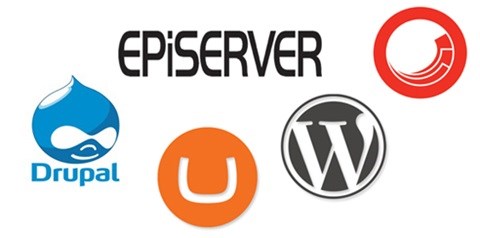
Top stories






More news

ESG & Sustainability
#AGES2026: How to back Africa's next-gen green and blue entrepreneurs















Logistics & Transport
#Budget2026: Road freight logistics and what it means for consumers

Determining your organisation's readiness
Considering a CMS platform with a potential vendor in any organisational structure can be a daunting task, especially if the planning phase has not been properly implemented or even considered. The path to success is oftentimes overlooked because the areas required to navigate can be complicated and expensive, and in the event where the project to select a CMS platform has been underestimated in terms of scope and time, it may happen that there is scope-creep and budgets need to be stretched to accommodate the extra time needed to implement the CMS in your organisation. This is obviously not an ideal situation in any event which is why the planning phase is imperative to avoid such disruptions.

Sometimes the impact of the changes on such underestimations recover well and the relationship between the organisation and vendor is left relatively unscathed. However, the opposite can also apply and the damage done is too difficult to overcome. Unfortunately this scenario happens more often than not and can't be attributed to a lack of knowledge about requirements or the web, but rather to the organisation's lack of experience in what it takes to implement a platform of this nature. The need for a CMS usually comes around every five-seven years and processes tend not to be mature enough to adequately support requirements.
A few notable points of consideration:
Selecting a vendor/supplier
A good vendor/supplier should guide the discussion process and help reframe the approach from 'CMS selection' to 'CMS readiness'. Look for a cultural and technological fit by evaluating a vendor's professional services, as well as their partner network/channel. This should help an organisation determine the overall approach to the digital channel and how best to align it for success with a new publishing platform. This requires some important questions:
• Customers: What is the role of digital in enabling interaction with your clients and how will this influence the way you interact with them across their entire journey?
• Content: How are you approaching the overall content strategy?
• Team & Culture: How will you support the digital channel and CMS, and do you have well-defined roles and qualified team members in place?
Justifying a new CMS investment
Thinking vertically and not horizontally in terms of adoption when considering what the criteria for a successful CMS platform is, is a good starting point.
Vertical adoption is a measure of how much the CMS is used and flashy features are no guarantee that a CMS will be utilised more. Most CMS clients are not ready to handle advanced web management. The fact that most customers feedback that they tend to use only the basic features, does not bode well for vertical adoption rates and if this doesn't improve, then customers will migrate to cheaper, simpler software and digital marketing goals will most likely not be realised.
Successful measurement of a CMS platform and accurate data on users are determined by those users who can get the most from the personalisation functionality in order to uphold a company's side of the conversation. To ensure that in the very least, an organisation considers the benefits of vertical adoption and evolved functionalities, these points are important:
• Set realistic expectations for team size and composition.
• Promote professional services and mentorship programmes.
• Focus attention on marketing performance goals.
How to determine the right CMS for your organisation
